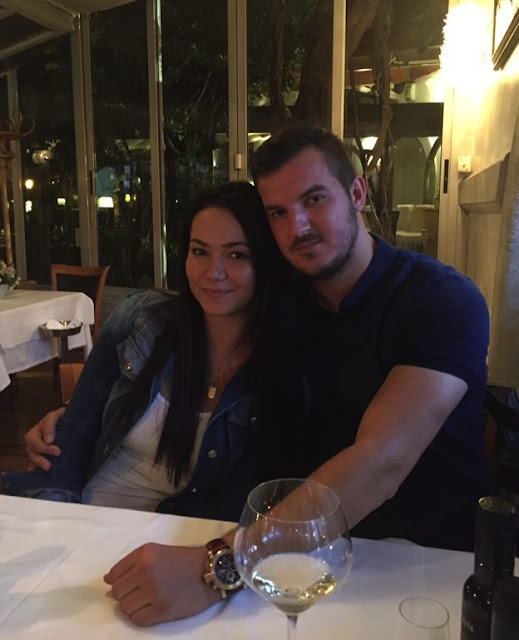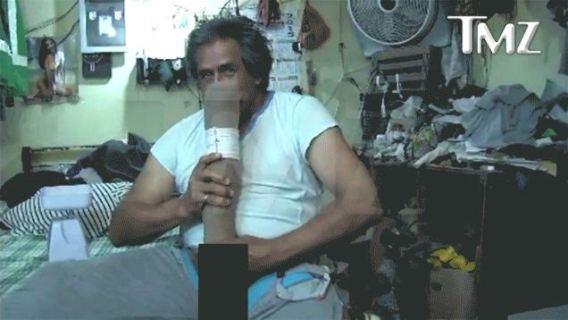Anti-Zuma protests take place across South Africa.
Skirmishes broke out in Johannesburg as more than 60,000 people marched in South African cities on Friday in largely peaceful protests to demand President Jacob Zuma quit after a cabinet reshuffle triggered the latest crisis of his presidency.
In the country's commercial hub Johannesburg, four people were injured after police "fired rubber bullets at protesters who were attacking other protesters with stones," Johannesburg Metro Police Department spokesman Wayne Minaar said.
Some backers of the ruling African National Congress (ANC) were trying to breach a cordon separating them from members of the opposition Democratic Alliance (DA).
Zuma's sacking of Finance Minister Pravin Gordhan in last Thursday's reshuffle has outraged allies and opponents alike, undermined his authority and caused rifts in the ANC, which has governed South Africa since the end of white-minority rule in 1994.
Fitch on Friday followed S&P Global Ratings and downgraded South Africa to "junk", citing Gordhan's dismissal as one reason. S&P had issued its downgrade on South Africa in an unscheduled review on Monday.
Two groups of protesters also scuffled outside the Gupta family mansion in Saxonwold, in Johannesburg's wealthy Sandton business district and the Police presence was beefed up outside the residence to keep anti-Zuma and pro-Zuma protesters apart.
The family's friendship with the scandal-troubled Zuma has been an issue for years, amid allegations that they have undue influence on the president. Both Zuma and the Guptas have denied any wrongdoing.
The violence, however, was not replicated anywhere else in the country.
Mmusi Maimane, leader of the DA, which had called for the march in Johannesburg, held a rally of more than 10,000 people that was calm, a few streets from the scene of the violence. Some held placards saying "Fire Zuma".
"Our country is in crisis," said Maimane, who wore a bullet-proof vest under his shirt after the DA said it had received threats to the protest's leaders. "The time to act is now."
In the capital Pretoria, about 15,000 people gathered in a field outside the Union Buildings, the site of Zuma's offices.
"We are unhappy about his leadership because he does not seem to care about the people," said Syriana Maesela, 65, a retiree carrying a South African flag. "The irony is I did the same thing in 1976 when I was a student. I also marched then," she said, referring protests against the apartheid regime.
A PROTEST SURVIVOR
As the protests came to an end countrywide, analysts doubted the marches would shake the president.
Zuma, 74, has faced protests in the past. The ANC on Wednesday rejected calls for Zuma to quit and said its members in parliament would vote against a motion of no confidence in Zuma on April 18, a key rallying call for the marchers on Friday.
Analysts said Zuma remains in favor in rural areas, contrasting with his waning popularity in urban quarters. At local elections last year, his party lost its majorities in Johannesburg and the municipality that includes Pretoria. Cape Town has long been controlled by the DA.
Zuma's supporters also gathered to support the president. About 300 camouflage-clad veterans of the ANC's now-disbanded Umkhonto we Sizwe (MKMVA ) military wing ringed the party's Luthuli House building in downtown Johannesburg, mounting mock parades and singing in support of the president.
Some clad in the yellow, green and gold colors of the ANC also danced, waving placards emblazoned with the words: "I'm prepared to die for my ANC" and "Hands off our President".
"They are free to march freely but not to try and remove a government that was elected democratically," said Kebby Maphatsoe, the head of the veterans group and also Deputy Minister of Defence and Military Veterans.
"Let them wait for 2019 and we will take them on, but the ones that want to remove it undemocratically, MKMVA will rise up to the occasion."
The rand ZAR=D3 weakened slightly after Fitch's announcement, with traders saying the agency's move had already been priced-in. The currency has tumbled about 11 percent since March 27, when Zuma ordered Gordhan to return home from overseas talks with investors, days before firing him.
"The bottom line is we are paying for the consequences of the political regime that has lost direction," said Gary van Staden, analyst at NKC African Economics. The downgrade will add to pressure on Zuma to leave office, he said.
Capital Economics Africa economist John Ashbourne said in a note that although there was mounting opposition to Zuma "we think that the most likely outcome is still that Mr. Zuma will decide the timing of his own exit."
PARLIAMENT
In Cape Town, motorists hooted in support of the march as about 10,000 people gathered, including outside parliament.
"It's not simply a question of his removal. It is about the renewal of the ANC and democracy," said Gerrald Ray, 56, a business strategist.
Nobel Peace Prize winner Archbishop Desmond Tutu, one of Zuma's harshest critics, took part in a protest with a few others outside the retirement home where he and his wife are staying in Hermanus, a coastal town 120 km (76 miles) from Cape Town.
About 7,000 people marched in the coastal city of Durban, the main city in the KwaZulu Natal province, an ANC stronghold.
"We need to unite and fight this corruption," said Michelle Fortune, 48, a manager who declined to say where she works. She wore a South African flag bandana.
Meanwhile, members of the ANC Youth League gathered in downtown Durban, singing "Awuleth'umshini wami", a song popularized by Zuma, which means "bring me my gun" and held placards supporting the president.
In the country's commercial hub Johannesburg, four people were injured after police "fired rubber bullets at protesters who were attacking other protesters with stones," Johannesburg Metro Police Department spokesman Wayne Minaar said.
Some backers of the ruling African National Congress (ANC) were trying to breach a cordon separating them from members of the opposition Democratic Alliance (DA).
Zuma's sacking of Finance Minister Pravin Gordhan in last Thursday's reshuffle has outraged allies and opponents alike, undermined his authority and caused rifts in the ANC, which has governed South Africa since the end of white-minority rule in 1994.
Fitch on Friday followed S&P Global Ratings and downgraded South Africa to "junk", citing Gordhan's dismissal as one reason. S&P had issued its downgrade on South Africa in an unscheduled review on Monday.
Two groups of protesters also scuffled outside the Gupta family mansion in Saxonwold, in Johannesburg's wealthy Sandton business district and the Police presence was beefed up outside the residence to keep anti-Zuma and pro-Zuma protesters apart.
The family's friendship with the scandal-troubled Zuma has been an issue for years, amid allegations that they have undue influence on the president. Both Zuma and the Guptas have denied any wrongdoing.
The violence, however, was not replicated anywhere else in the country.
Mmusi Maimane, leader of the DA, which had called for the march in Johannesburg, held a rally of more than 10,000 people that was calm, a few streets from the scene of the violence. Some held placards saying "Fire Zuma".
"Our country is in crisis," said Maimane, who wore a bullet-proof vest under his shirt after the DA said it had received threats to the protest's leaders. "The time to act is now."
In the capital Pretoria, about 15,000 people gathered in a field outside the Union Buildings, the site of Zuma's offices.
"We are unhappy about his leadership because he does not seem to care about the people," said Syriana Maesela, 65, a retiree carrying a South African flag. "The irony is I did the same thing in 1976 when I was a student. I also marched then," she said, referring protests against the apartheid regime.
A PROTEST SURVIVOR
As the protests came to an end countrywide, analysts doubted the marches would shake the president.
Zuma, 74, has faced protests in the past. The ANC on Wednesday rejected calls for Zuma to quit and said its members in parliament would vote against a motion of no confidence in Zuma on April 18, a key rallying call for the marchers on Friday.
Analysts said Zuma remains in favor in rural areas, contrasting with his waning popularity in urban quarters. At local elections last year, his party lost its majorities in Johannesburg and the municipality that includes Pretoria. Cape Town has long been controlled by the DA.
Zuma's supporters also gathered to support the president. About 300 camouflage-clad veterans of the ANC's now-disbanded Umkhonto we Sizwe (MKMVA ) military wing ringed the party's Luthuli House building in downtown Johannesburg, mounting mock parades and singing in support of the president.
Some clad in the yellow, green and gold colors of the ANC also danced, waving placards emblazoned with the words: "I'm prepared to die for my ANC" and "Hands off our President".
"They are free to march freely but not to try and remove a government that was elected democratically," said Kebby Maphatsoe, the head of the veterans group and also Deputy Minister of Defence and Military Veterans.
"Let them wait for 2019 and we will take them on, but the ones that want to remove it undemocratically, MKMVA will rise up to the occasion."
The rand ZAR=D3 weakened slightly after Fitch's announcement, with traders saying the agency's move had already been priced-in. The currency has tumbled about 11 percent since March 27, when Zuma ordered Gordhan to return home from overseas talks with investors, days before firing him.
"The bottom line is we are paying for the consequences of the political regime that has lost direction," said Gary van Staden, analyst at NKC African Economics. The downgrade will add to pressure on Zuma to leave office, he said.
Capital Economics Africa economist John Ashbourne said in a note that although there was mounting opposition to Zuma "we think that the most likely outcome is still that Mr. Zuma will decide the timing of his own exit."
PARLIAMENT
In Cape Town, motorists hooted in support of the march as about 10,000 people gathered, including outside parliament.
"It's not simply a question of his removal. It is about the renewal of the ANC and democracy," said Gerrald Ray, 56, a business strategist.
Nobel Peace Prize winner Archbishop Desmond Tutu, one of Zuma's harshest critics, took part in a protest with a few others outside the retirement home where he and his wife are staying in Hermanus, a coastal town 120 km (76 miles) from Cape Town.
About 7,000 people marched in the coastal city of Durban, the main city in the KwaZulu Natal province, an ANC stronghold.
"We need to unite and fight this corruption," said Michelle Fortune, 48, a manager who declined to say where she works. She wore a South African flag bandana.
Meanwhile, members of the ANC Youth League gathered in downtown Durban, singing "Awuleth'umshini wami", a song popularized by Zuma, which means "bring me my gun" and held placards supporting the president.









Comments
Post a Comment